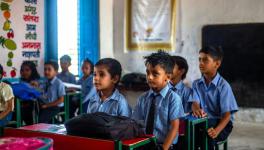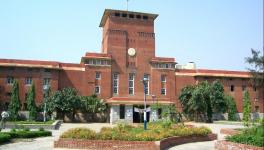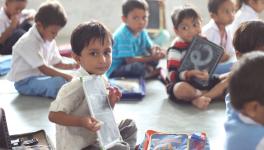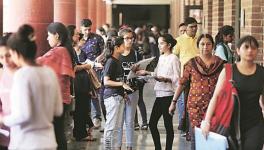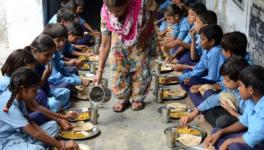Private Interest Masquerading as Policy Critique?
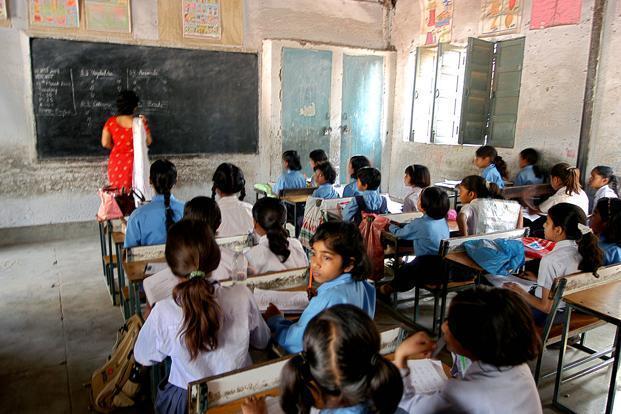
Representational Image. Image Courtesy: Hindustan Times
Geeta Gandhi Kingdon, Professor of Education Economics at University College London and President of City Montessori School (CMS), Lucknow, has critiqued the New Education Policy in an article published in Times of India on June 24, 2019. She has identified poor school and teacher accountability as the main cause of learning crisis in public schools. She has advocated Direct Benefit Transfer (DBT) to parents to enable them to have the purchasing power to hold the schools accountable. She is against increase in education budget, citing a lavish pupil teacher ratio of 12 and expenditure of Rs. 51,917 per pupil on teacher salary in elementary public schools. She is obviously promoting the interest of private, so-called unaided schools, over public schools which is understandable as she heads the largest chain of a private school, CMS, in Lucknow. However, this is clearly in conflict with her role as an academic who is supposed to be working for public interest.
The narrative around the DBT is easy to sell as the ruling government claims to have transferred benefits with reduced corruption in many of the centrally-sponsored schemes. But is the same model applicable in the field of education? At least the research disagrees with this logic. A study conducted in 2018 in East Delhi with 800 households in low-income neighbourhoods finds no or negative impact of such transfers/vouchers in the learning level of the students. The results of the study are consistent with the studies conducted prior to this study. The suggestion by the author is feeble as it ignores the socio-political realities surrounding the education system. The problem of our primary schooling is that there are different types of schools for children from different types of backgrounds, thus differentiating childhood based on their socio-economic backgrounds.
Geeta Gandhi repeats the gross mistake of not keeping the child at the centre of education policy and misses out on the importance of equity, accessibility, quality and affordability to let children have equal opportunity. She fails to mention and so does NEP, that the only model which has succeeded in achieving universalisation of primary education around the world is the Common School System which is run, funded and regulated by government and in India, is a 1968 Kothari Commission recommendation. She thinks government cannot play all the roles -- of policy maker, operator, assessor and regulator of schools. However, it is the same government which runs good quality Kendriya and Navodaya Vidyalayas and world class higher educational institutions like Indian Institutes of Technology (IITs), Indian Institutes of Management (IIMs), All India Institute of Medical Sciences (AIIMSs), Indian Institutes of Science Education and Research (IISERs) and various National Law Universities (NLUs). Hence, by advancing a flawed logic, she is trying to belittle public schools.
Also read: Draft National Education Policy – Seductive Sophistry in Service of the RSS
Around 65% children still attend public schools, and to propose a solution which only focuses on the population which is ready to make a shift to private schools will be naive at multiple levels. A deeper look at her suggestion also raises fundamental questions about the author's interest in pushing the interest of the private schools and catering to the interest of only privileged children. In fact, private schools can be directly held responsible for the deterioration in quality of government schools, as slowly the children of ruling elites made a switch from government to private schools. Another important piece of information missing from her article and NEP is the 2015 Allahabad High Court judgement of Justice Sudhir Agrawal which sought to make it mandatory for everyone receiving a government salary to send their children to government schools. The implementation of this judgement, to which the Uttar Pradesh government has turned a blind eye so far, could be a step in the direction of moving towards a common school system and an effective remedy to the learning crisis that Geeta Gandhi is alluding to in her article.
Except for some elite urban schools, most private schools, especially in rural areas, reportedly run mass copying rackets. There have been reports that students can pass board examinations in exchange for a sum of money, which is divided between the school management and the education department officials. The NEP, too, ignores this widespread phenomenon, especially in North India, and avoids making any suggestion for elimination of this aberration.
She is an advocate of DBT. Then why is her school not admitting children under Section 12(1)(c) of the Right to Education Act 2009 which offers at least 25% seats for free education from classes I to VIII to children of disadvantaged groups and weaker sections with their fees to be paid by the government directly to the school? Segregation in the current schooling system is conspicuous. To deal with the same, the above mentioned Section was provided for in the RTE Act at the entry-level.
Even a simple Google search on violation of the RTE Act brings to notice that her own school has not been admitting children under this provision. CMS has admitted 13 children because of a court order in 2015-16 and two on its own in 2018-19 out of 31, 55, 296 and 270 admissions ordered by the basic education department in 2015-16, 2016-17, 2017-18 and 2018-19, respectively. This implies a compliance of only 2.3% of the admission orders. And these number of admissions ordered are nowhere near the standard 25% prescribed by the law. Curiously, Geeta Gandhi talks about unaccountability of the public schools in her article! If CMS would have honoured all the above mentioned admissions it would have gained Rs. 35,20,800 as direct transfer from the government in 2018-19 towards the fees of these children. Hence, it is not really the DBT that CMS seems interested in. Can one conclude that it simply doesn't want underprivileged children to sit beside the children from elite class?
Also read: New Education Policy: RTE Pruned, Research Market Based
There are other examples of alleged unaccountable behaviour of CMS. Some of its branches are allegedly being run illegally without certificates of land from revenue department and no objection certificates from education department on encroached lands. There are pending demolition orders against its Indira Nagar and Mahanagar branches, and a court case pending against its Jopling Road branch for the last over 25 years. CMS was reportedly running an illegal bank from its Chowk branch offering 12-13% interest on deposits.
There is probably no government school which is run with so many violations of rules and laws.
India spends only 4.6% of its gross domestic product on education whereas the Kothari Commission recommendation and a global standard spent by other countries is 6%. To argue to not increase India's expenditure on education is a prescription to deny large number of underprivileged children, especially from rural areas, any decent quality of education or any education at all. By quoting average figures of pupil-teacher ratio or the expenditure per pupil, Geeta Gandhi is masking the large number of schools where a single teacher may be handling more than one class simultaneously in her classroom in complete violation of norms of pupil-teacher ratio under the RTE Act.
Also read: Nothing 'New' in New Education Policy, Peddles Corporatisation and Centralisation in Education
Geeta Gandhi Kingdon's attempt to defend the indefensible in the garb of an academic have come a cropper. She cannot be in London and Lucknow at the same time, ideologically speaking.
Sandeep is an activist and Praveen teaches at Queen's College, Lucknow. The writers are grateful to Ishu Gupta, researcher at IIM Ahmedabad for providing useful feedback. The views expressed are personal.
Get the latest reports & analysis with people's perspective on Protests, movements & deep analytical videos, discussions of the current affairs in your Telegram app. Subscribe to NewsClick's Telegram channel & get Real-Time updates on stories, as they get published on our website.











